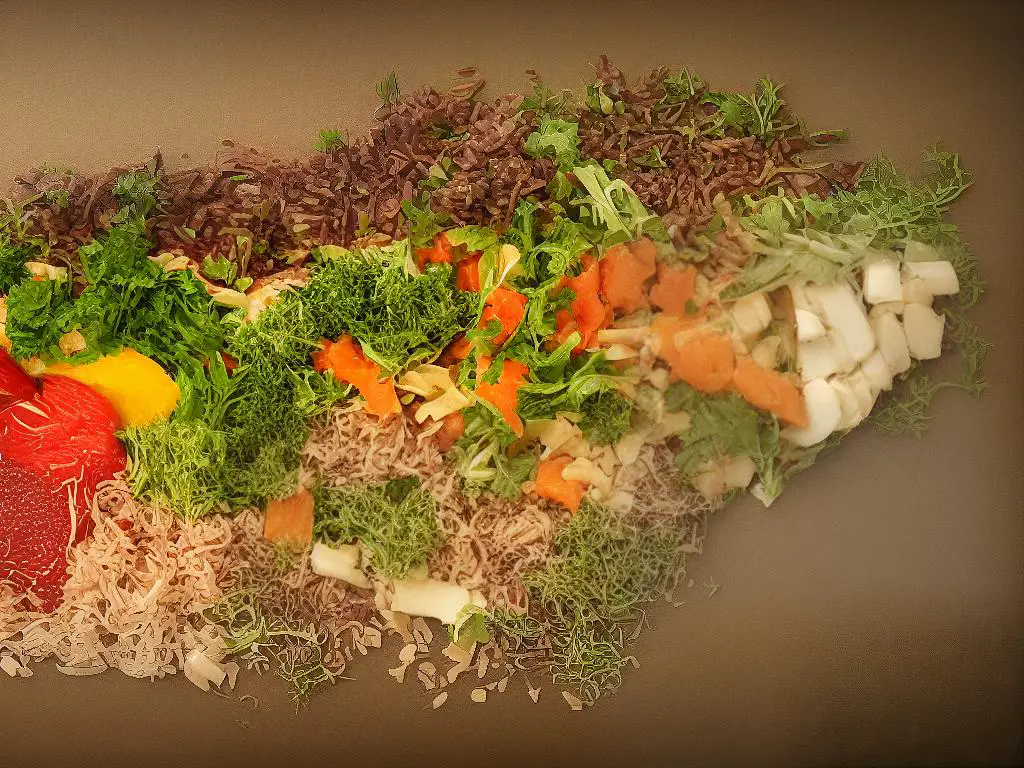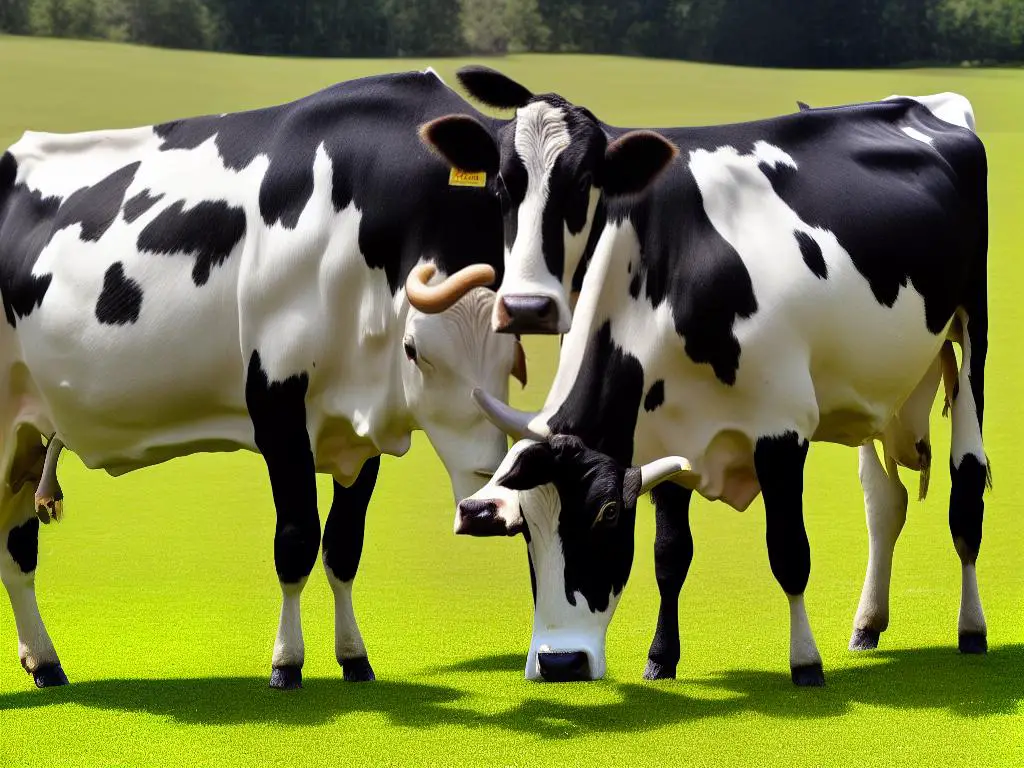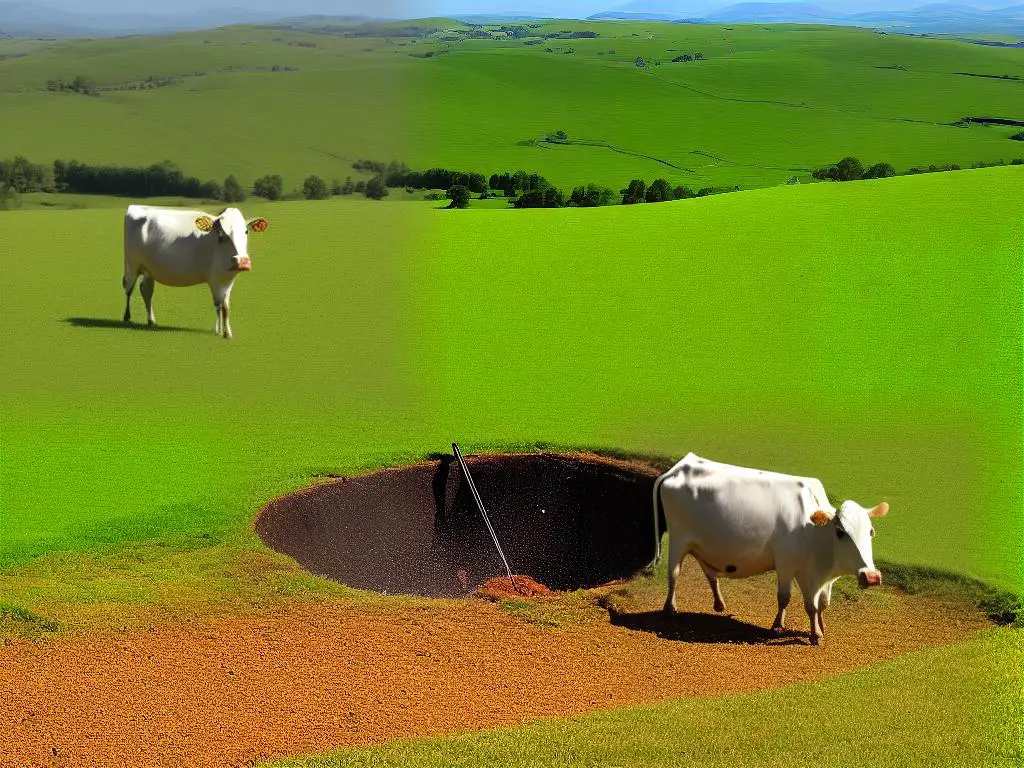As a diverse and curious group of animals, cows have a unique and complex digestive system that plays a significant role in their diet and overall health. In this article, we dive into the world of cows and their relationship with a not-so-typical food, apples! We will explore their natural diet, the benefits of feeding apples to cows, and any potential impacts on their milk and meat quality.
Cows’ natural diet and digestion
Cow’s Digestive System
Cows have a unique four-chambered stomach that allows them to digest fibrous plant materials very effectively. The four chambers, known as the rumen, reticulum, omasum, and abomasum, work together to break down plant fibers through fermentation processes carried out by billions of microbes. This specialized digestive system enables cows to extract the nutrients from coarse, fibrous plants such as grasses, hay, and silage, which constitute the majority of their diet.
Cows and Apples
Cows primarily consume a diet of grass and hay, but they can also eat a variety of plant materials, including fruits and vegetables such as apples. These fruits can serve as a healthy and natural treat for cows when given in moderation. Apples provide valuable nutrients and can act as supplementary sources of energy thanks to their sugar content. However, it’s important not to overfeed apples as excessive sugar intake may lead to digestive issues in cows.
Farmers who choose to incorporate apples into their cows’ diets must ensure the fruits are free of pesticides or contaminants, as these substances can be detrimental to the animals’ health. When introducing apples or any new food source, it’s crucial to monitor the cows for any signs of discomfort or digestive issues. Ultimately, while grass and hay remain the foundational elements of a cow’s diet, apples and other fruits can provide a safe, enjoyable, and nutritionally beneficial treat for cows when consumed in moderation.

The benefits of feeding apples to cows
Offering apples as a treat for cows can provide a range of nutritional benefits, making it a wholesome addition to their diet. Apples are a rich source of vitamins, minerals, and sugars, all of which contribute to the energy content of a cow’s diet. Some notable nutrients found in apples include vitamin C, which is essential for tissue repair and maintaining the health of connective tissues, as well as vitamin A, vitamin K, and potassium. By providing apples in moderation, farmers can help supplement the nutritional needs of their cows and supply additional essential nutrients to their diets.
The sugars present in apples, predominantly fructose, supply a readily-available source of energy for cows. These sugars are effortlessly converted into glucose, which is the primary fuel that cows use for energy. While cows chiefly consume forages like grass and hay as their main food source, fruits such as apples can help to supplement their diet and offer additional energy for lactation and other bodily functions. Furthermore, the high water content in apples enhances their overall hydration, which is essential for maintaining proper digestion and maintaining body temperature in cows.
Integrating apples into a cow’s diet can offer potential benefits for the environment and help reduce food waste. Often, apples that are not suitable for human consumption due to blemishes or imperfections can be fed to cows instead of being discarded. This not only provides an additional source of nutrition for the cows, but also promotes sustainable agriculture practices. In conclusion, apples serve as a valuable addition to a cow’s diet, supplying essential vitamins, minerals, and energy to support their overall health and well-being.

Photo by ellerysterling on Unsplash
Cautionary measures while feeding apples
While feeding apples to cows can indeed supply them with a nutritious and delicious snack, it is essential to adhere to certain safety measures to maintain the cows’ health. By doing so, this enjoyable treat can benefit both the cows and the environment.
One key factor to consider is the appropriate size of apple pieces. Large apple chunks can pose a choking hazard to cows. To avoid this, make sure to slice the apples into smaller pieces or even mash them to reduce the risk of choking and to facilitate proper digestion.
Frequency and quantity of apples fed to cows must also be taken into account. Cows have complex digestive systems and are best suited to consuming fibrous plant materials like grass and hay. Introducing large amounts of apples into a cow’s diet suddenly may cause stomach issues and digestive upset. To prevent this, start with smaller portions of apples and gradually increase the quantity over time. This allows the cow’s digestive system to adjust to the new food source and prevents digestive problems.
Many people might not know that cows can actually enjoy a tasty treat from the fruit family: apples. In particular, apple pomace, the residual solids from apple juice and cider production, can be a beneficial and environmentally friendly supplemental feed for cows. This unique practice of repurposing a byproduct, especially from the growing cider industry, can result in various positive outcomes.

Cows and apple waste from cider production
When feeding apples to cows, it is essential to consider the potential presence of mold or rotten parts. Moldy or rotten apples could cause harm to the cows’ health and well-being. Before feeding apples to cows, inspect them thoroughly and discard any that show signs of spoilage or mold. Making this a routine practice will aid in maintaining the health of the cows and provide them with a safe, enjoyable, and nutritious treat.
Feeding cows with apple pomace has been scientifically studied, proven to not only be safe but also advantageous to both the animals and the environment. By incorporating apple pomace into a cow’s diet, farmers can diversify their feed sources, thereby increasing overall sustainability. Furthermore, utilizing what could potentially be waste reduces the amount of material that needs to be disposed of in landfills, simultaneously decreasing methane emissions and the environmental impact of the cider production process.
Apple pomace, which is nutrient-rich and an ideal source of essential vitamins and dietary fibers, has been shown to benefit cows when incorporated into their diet. Research indicates that cows fed with apple pomace experience enhanced digestive health, improved body condition, and increased growth potential. By recycling the residual solids from apple juice and cider production, a sustainable, circular economy within agriculture is promoted – an economy that is more eco-friendly and beneficial to both the cattle and the land they graze on.

The impact on milk or meat quality
One intriguing aspect of cows consuming apples relates to the quality of milk or meat these animals produce. Their diet can potentially influence the taste and nutritional content of the resulting milk and meat. Some studies have shown that incorporating fruit, like apples, into a cow’s diet can increase the levels of polyunsaturated fatty acids in milk, which are beneficial to human health.
Apples are rich in antioxidants, fiber, and other nutrients, which could contribute to the overall quality of the milk or meat the cows produce. These components may help improve the cows’ overall digestive health and immune system, leading to healthier animals. As a result, healthier animals are likely to produce higher quality milk and meat for human consumption. Anecdotal evidence suggests that both milk and meat from cows fed apples can have a slightly sweeter and more pleasant flavor profile.
It’s important to note, however, that further research is needed to fully understand and confirm the potential benefits of feeding apples to cows. Factors such as apple type, quantity included in their feed, and the cows’ overall diet can all impact the potential effects on milk and meat quality. Additionally, while apples may provide some nutritional benefits to cows, it’s crucial to ensure that they are fed a balanced diet that meets their specific nutritional needs.

Photo by pepe_nero on Unsplash
Now that we have delved into the topic of cows and their apple consumption, it is clear that this fruit can provide benefits to their diet when fed in moderation and with proper precautions. As an environmentally friendly supplement and source of essential nutrients, apples have the potential to positively impact the quality of cows’ milk and meat. However, it is crucial to always keep in mind the unique needs and sensitivities of a cow’s digestive system when introducing new food sources.